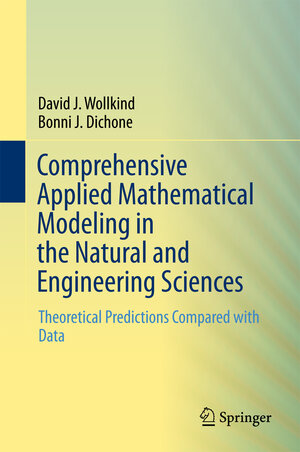
×
![Buchcover ISBN 9783319735177]()
“This ambitious textbook on mathematical modeling is intended for use as a text in a two-semester course for graduate students or advanced undergraduates. … Where the authors get into the details of mathematics and science, the exposition is smooth and the writing clear and direct … . Each chapter has an abundance of well-chosen exercises. The capstone problems are also appealing and suggest excellent end-of-term projects.” (Bill Satzer, MAA Reviews, October, 2018)
Comprehensive Applied Mathematical Modeling in the Natural and Engineering Sciences
Theoretical Predictions Compared with Data
von David J. Wollkind und Bonni J. DichoneThis text demonstrates the process of comprehensive applied mathematical modeling through the introduction of various case studies. The case studies are arranged in increasing order of complexity based on the mathematical methods required to analyze the models. The development of these methods is also included, providing a self-contained presentation. To reinforce and supplement the material introduced, original problem sets are offered involving case studies closely related to the ones presented. With this style, the text’s perspective, scope, and completeness of the subject matter are considered unique.
Having grown out of four self-contained courses taught by the authors, this text will be of use in a two-semester sequence for advanced undergraduate and beginning graduate students, requiring rudimentary knowledge of advanced calculus and differential equations, along with a basic understanding of some simple physical and biological scientific principles.



